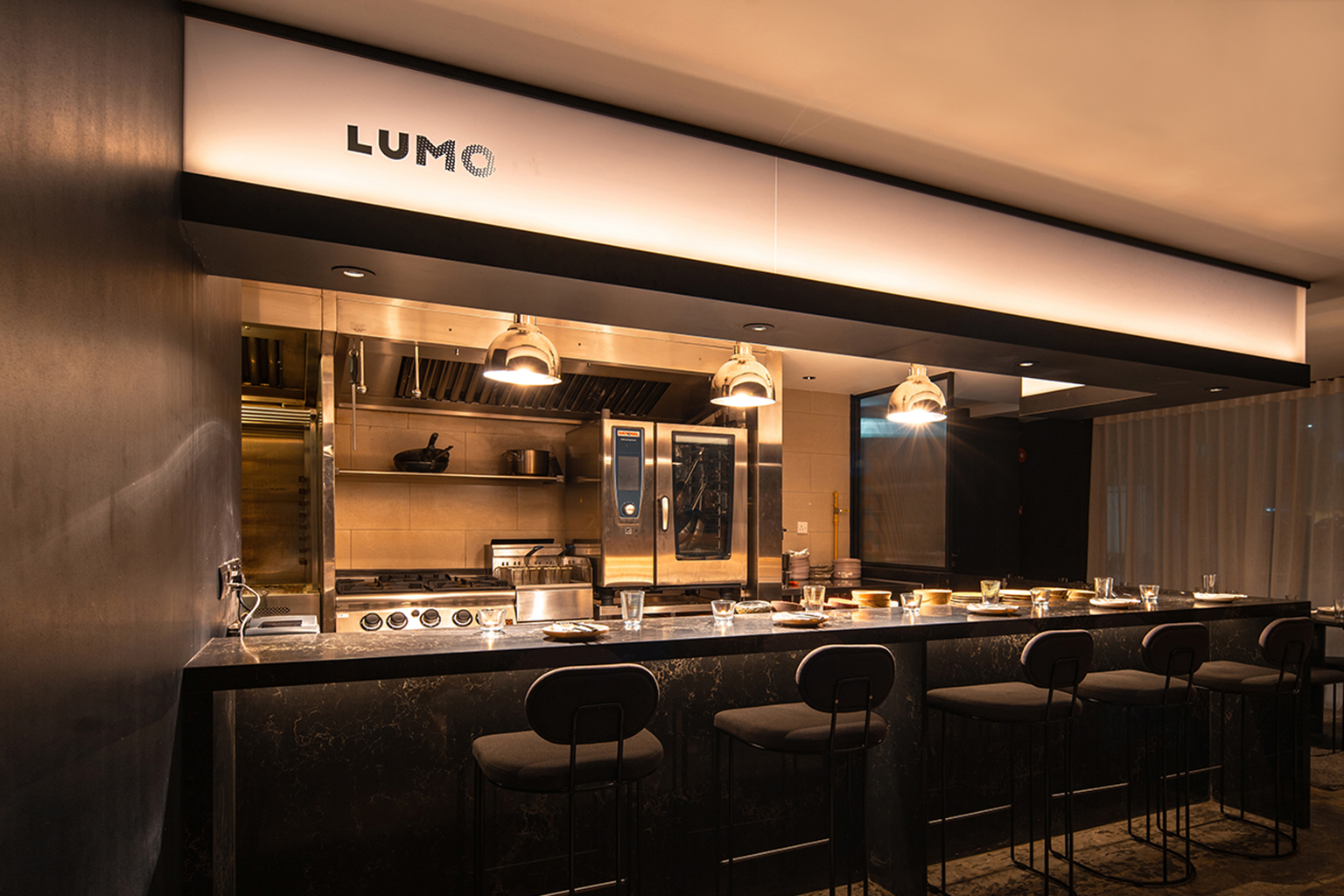Restaurants determined to stay open during coronavirus circuit breaker despite dismal takings
Sign up now: Weekly recommendations for the best eats in town

Newly-opened cocktail bar and restaurant Lumo in South Bridge Road is pressing on with building brand awareness on social media.
PHOTO: ODDINARY STUDIOS
Follow topic:
Even with the circuit breaker extended until June 1, many restaurants say they will stay open.
This is despite the sharp fall in revenue after dining in was banned from April 7 and they had to depend on takeaway and delivery orders.
Their reasons vary - from a desire to keep their brand going to collecting whatever revenue they can get.
The ilLido Group, for example, has closed five of its six outlets, including the fine-dining Art at National Gallery Singapore and the one-Michelin-starred Braci in Boat Quay.
But it has kept Amo in Hongkong Street - known for its wood-fired pizzas and pastas - running.
Its spokesman says: "It is important that the brand stays open, not only to try to generate some sales, but to also be present during this difficult period.We have to try our best to generate sales to ensure our staff are paid and are able to retain their livelihoods."
Dr Martin Bem from the fine-dining LeVeL33 and Erwin's gastro-bar at Marina Bay Financial Centre echoes the same sentiment: "We are trying to keep as many staff employed as possible."
He stresses that his restaurants will try not to disappoint customers who want its food, even though there was one day LeVeL33 had zero sales.
Erwin's is doing better with $300 to $800 in sales a day, mainly from takeaways.
It is even tougher for newcomers such as the month-old Lumo, a cocktail bar and restaurant in South Bridge Road.
Owner Alex Chok says: "In the initial week of the circuit breaker, we had close to zero orders, and subsequently less than $200 in sales a day on average."
Based on these sales figures over a month, he estimates he would lose at least $25,000, after taking into account the wage support and rental rebates.
He adds: "One reason we stay open is so we can build awareness on social media, but it has become very competitive."
Mr Rohit Roopchand, who co-founded trendy eateries Fat Prince, Summerlong and Neon Pigeon, has worked with other restaurants to form their own delivery platform called The Dine In Movement to save on commissions.
Orders at the beginning of the week are "only a handful", though they pick up on weekends.
He says revenue had dropped by 80 to 90 per cent compared with normal times, but he will keep things going "and make it on the other side".
Hotels are obligated to keep some of their restaurants running to cater to guests, but many have trimmed their operations.
Fairmont and Swissotel The Stamford at Raffles City have closed all their outlets except for Italian restaurant Prego.
Goodwood Park is keeping four outlets open, but closed the fine-dining Gordon Grill and L'Espresso cafe.
Business has improved slightly for the hotel over the past two weeks, with an average of 30 orders a day, compared with 20 previously. Demand has also moved from takeaways to deliveries, with most orders coming from The Deli, followed by Coffee Lounge and Chinese restaurants Min Jiang and Min Jiang at Dempsey.
The hotel's spokesman says: "For now, it is still operationally feasible for us to keep these four outlets open and we need to take care of our in-house guests as well as our dining regulars."
One restaurateur, however, threw in the towel a week into the circuit breaker. Yun Nans, a casual eatery serving Yunnan food with outlets in Jewel Changi Airport and Westgate mall, has stopped its takeaway and delivery services. The restaurants are closed until the end of the circuit breaker.
Its chief operating officer Reuben Chua says the Jewel outlet was not serviced by delivery platforms and there was no residential area nearby.
As for Westgate, the lack of delivery drivers had increased the pick-up and delivery time and that badly affected the food quality. Mr Chua was also concerned about the health of his staff.
During the week it remained open, sales ranged from more than $600 to about $2,000 a day. Mr Chua reckons he was losing an average of $3,000 a day.
He says of the poor sales: "People are worried about job security and are spending less. Casual restaurants like ours are badly affected."

